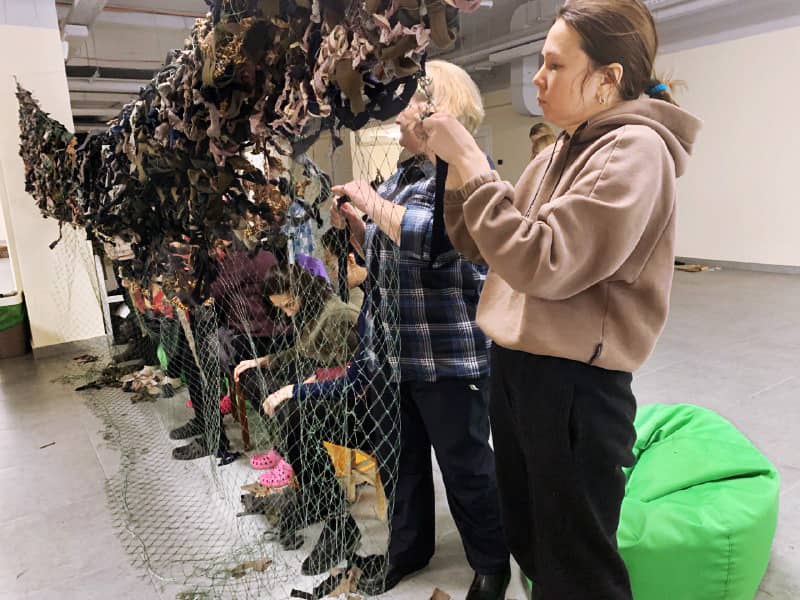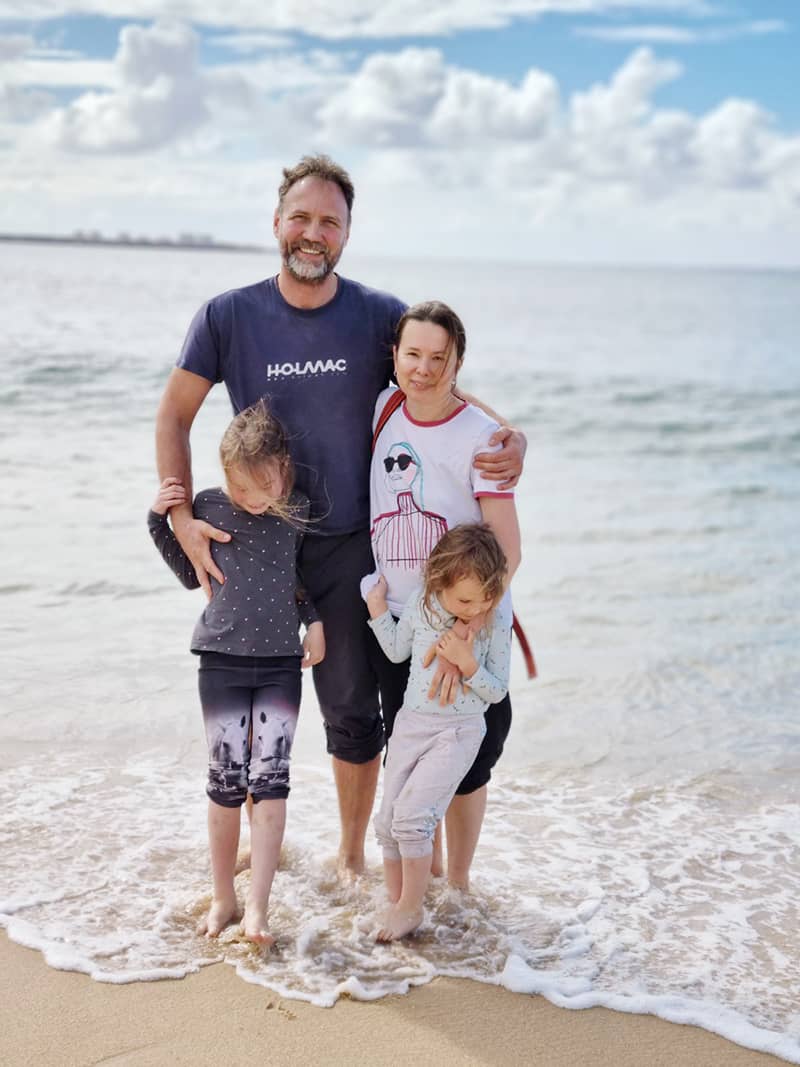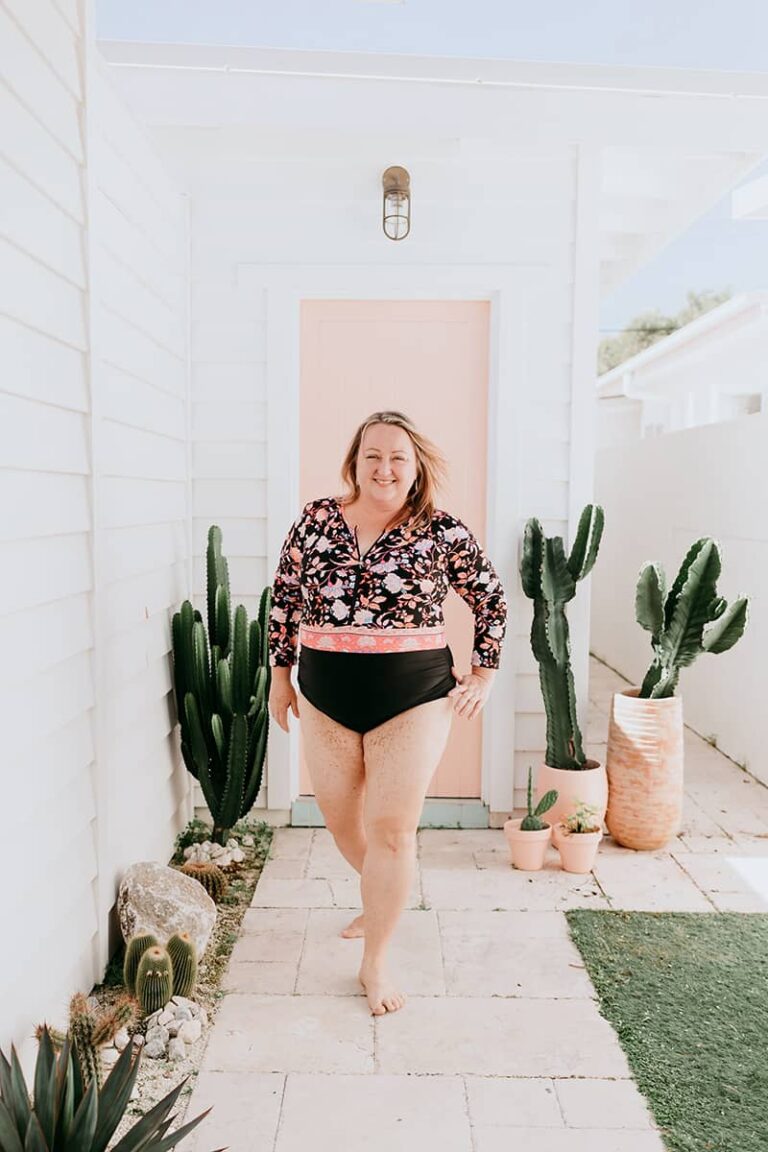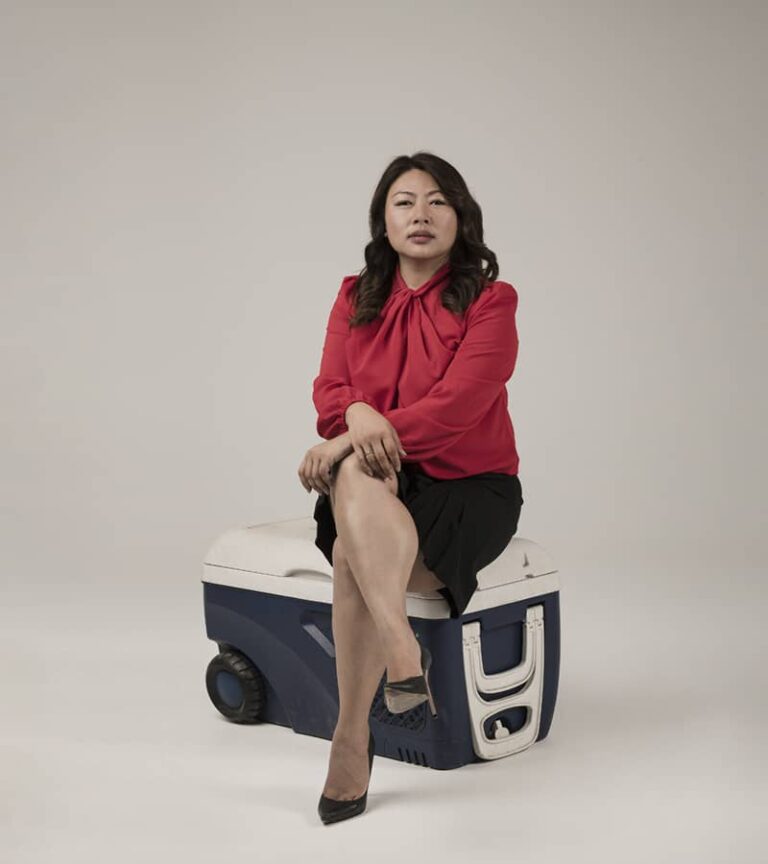I never imagined I would ever become a refugee. But, thanks to the goodwill of strangers I have been able to rebuild a life with my family and understand how powerful acts of kindness are.
I was born and grew up in Russia but in 2014, I moved to Ukraine to marry my husband, Volodymyr. He owned the biggest garden nurseries in Ukraine and together with our two daughters Yeva, seven, and Maiia, five, we enjoyed a very prosperous and happy life in Kyiv. In 2020, due to the pandemic, we moved to Boryspil, a less populated satellite town east of Kyiv to feel safer. But that safety began to be threatened at the end of 2021, by the ongoing rumours of an upcoming war from Russia.
To me it seemed unbelievable that a war in modern times would be possible. Yet my husband, who had already once escaped Russian attacks in Donetsk in 2014, assured me that it was possible. He even pleaded with me to take our kids and flee to a different European country without him. I refused. Instead, I pre-packed a suitcase mostly with warm clothes for our children, some crafts to keep them busy and just one change of clothing for ourselves. Our plan was to drive out of Kyiv if the war began, so I packed light to conserve fuel. When nothing happened on 16 February – the day we were expecting the war to begin, I felt it was all just a big lie.
Consequently, when on 23 February, the rumours began circulating again, I once again expected nothing to happen. But I was wrong. At 5am the next day my body leapt out of bed from the shattering sound of bombs. Within seconds I heard screaming sounds throughout our apartment building, as the neighbours began to escape. I was completely paralysed.
We decided it was now best to wait until the panic in the streets subsided and find the right time to leave. So, we placed the suitcase in our car ready to go at any moment and made our way to the bomb shelter underneath our local school building.

Life in a bomb shelter
As a family of four we were provided just two square metres of floor space and cardboard boxes to sit and sleep on. We took our own bedding – sheets, blankets, and pillows, just to make the area a bit warmer and comfortable.
From 4pm until 10am we were obligated to stay in the bomb shelter. In-between, we would walk up the stairs to our 10th floor apartment for a quick shower, to cook something to eat or queue at the supermarket to buy whatever groceries were left. Very quickly there was a shortage of food, which meant there was no bread, eggs or meat, just snacks like chocolates and crisps which the kids enjoyed.
Ironically the bomb shelter became the only place where I could relax and feel safe. Outside I was always alert and tense, feeling constantly under threat. To keep ourselves busy we made up a roster and took turns cleaning, looking after the kids and organising some fun activities for them. Night-time was the most challenging because we weren’t allowed to keep the lights on and being in total darkness while hearing the distant bombings was very scary.
What was interesting to me was seeing how people in the same situation act differently, but also how they pull together under such circumstances. Some people were paralysed by fear and were constantly crying, while others selflessly helped the elderly move around and those who worked at a pharmacy brought in medicines for them and even organised for doctors to come and check up on them.
Mostly, I admired those who tried to do good things. One lady arranged for us to begin weaving camouflage nets for the army. I joined that group, and it was a good way to pass time creatively and share life stories, which kept us mentally healthy.
When, a week later, we were informed that the Russian tanks were just 25km away, we realised it was just a matter of days before they invaded our hometown. Coupled with the information that Volod received from friends on the ground fighting that there was just one bridge left in Kyiv that we could still cross to get to the border into Moldova, we decided to take a chance and make our way in what seemed to be our last opportunity to leave the country.
Because my husband has four children – two from a previous marriage and two with me, he was exempt from the presidential decree that stopped men with less than three children leaving the country. So he was able to lead us to safety.
The normally one-day car trip to the Moldovan border took us nearly three days due to armed military blocks which stopped us every 20 minutes to have our car and documents checked. Further, because of night-time driving restrictions, we just tried to keep ourselves warm and comfortable and get as many hours of sleep as possible in the car.
The most heart-warming experience was how ordinary people, who actually didn’t have enough food for themselves, graciously gave us food for free along the way.
Once we got to Moldova, we spent another week in the car driving through Romania and Hungary before arriving at our friend’s place in the Czech Republic. In the meantime, our Australian friend and business associate, John Stanley, sent us an email saying simply in a few lines: “Get on the plane to Perth and come and see us.” At this point we just wanted to leave Europe altogether – also because of the nuclear threat. Australia felt like the safest place in the world. Within a week we organised our tourist visas and our plane tickets departing Berlin airport, as they offered the cheapest tickets to Perth and after our final four-day road trip to Berlin, we left everything behind with only the unknown ahead of us.
Generosity of strangers
We arrived in Perth on 26 March last year, and stayed at John’s farm, in Nannup. On our second day there, Louise Stokes, a local activist gave us two coupons worth $500 each to buy anything we needed from the local op shop and pharmacy. Quickly many locals also arrived at our doorstep leaving boxes filled with bedding, toys and clothes, and a month’s worth of groceries were paid for by the local community. A crowdfunding also organised by Louise raised $5,000 in just a week for us to buy a car.
Within four weeks, with help from the Red Cross and from the local Lions Clubs which allowed us to pick up any furniture we needed free of charge, we had everything we needed to move into our new rental home in Nannup.
Luckily, even though my husband doesn’t speak English, due to his specialist knowledge in horticulture he found work at Parnells Nursery, in Tincurrin, WA. The only challenge is that he’s away most of the time. He comes to see us on Saturdays and leaves on Sundays. I’ve also been able to put my Soviet high school sewing education skills to good use and I work locally sewing tents around my children’s school hours. With my daughters, at first I tried to explain to them that this was just a short-term adventure. But as the months passed and my eldest daughter began to ask more about returning home and was very concerned about her German Shepherd dog we left behind, I’ve had to talk to her about the war, how it won’t end fast and that it’s dangerous to go back home. Recently, they’ve also shown progress in their ability to speak and understand English at school, which has been a great relief.
Another great family challenge I faced involved my pro-Putin and pro-war family back in Russia. They seemed unable to understand the loss my family suffered, so I stopped talking to them for six months. But as time went by and my elderly father had a cancer operation, I decided to resume communication. Yet the relationship will probably never be the same as before. War has torn our family in two pieces.
Similarly, when I started sharing on Facebook with friends and ex-colleagues in Russia what we were experiencing in Ukraine, being pro-Putin as well, they removed me from the page. It felt like a big part of my life had evaporated in a second.
A few remaining friends in Ukraine tell me how they’ve become used to living in this war situation, without electricity, water and heat, and staying in the bomb shelter, trying to home school their kids. I feel we were ‘lucky’ in a way to be among the first to see the bombings, because it made us aware that there was a war. Some people remained unaware until it was too late to leave.
I feel ‘unrooted’ and I’m still finding it hard to adjust to this new way of life. Perhaps in a year I’ll feel differently. I need time. I do consider Australia to be a great country with lots of opportunities for my children and that’s my priority, to give my children a great quality of life. If I were single, I would probably go back to Ukraine, but with a family, I don’t think post-war Ukraine will be beneficial for any of us.
My life lesson is that you never know what life has prepared for you. I felt that my life was settled and relatively predictable in Ukraine. But that world was suddenly ruined. I was also indifferent to humanitarian issues. But when I became a refugee, I understood the importance of helping others. My new hope in life is to one day return the goodness I’ve received.
Consequently, in an upcoming book, released in April, called Campfire for a Woman’s Heart, I wrote a chapter named ‘Apples of Hope’, inspired by our last stop in Ukraine, where I was given a whole kilo of apples by a wonderful lady. Each time I ate one, I knew that freedom was closer.
Get help for PTSD
A traumatic event that causes PTSD can be anything that threatens your life or safety. Examples include a car or other serious accident; physical or sexual assault; war or torture; and disasters such as bushfires or floods. A study by Arizona State University of more than 4,000 members of the NZ Police Association (both serving and retired) found around 43 per cent identified themselves as experiencing probable post-traumatic stress. Just 3 per cent of the general population of New Zealand is considered to have PTSD, meaning police are overly affected.
Dealing with trauma
Trauma is a change that occurs inside a person and stems from a perceived threat which overwhelms one’s ability to cope. Trauma can be acute, chronic or vicarious and is the root cause of the majority of mental health issues.
Francesca Faggioli, clinical psychologist and New Zealand Red Cross Refugee Trauma Recovery Clinical Lead, explains how a person suffering from post-traumatic stress disorder (PTSD) can get stuck in reliving the past as the present and this results in an emotional disconnection from self and others. “Refugees that do experience PTSD realise it after they’ve settled in a new country when going through new stressors such as understanding a new culture, learning a new language or finding a new job,” says Faggioli.
“When a person though works with a culturally informed trauma therapist that uses a holistic approach, former refugees can recover from their own trauma and restore themselves to wholeness, thus avoiding passing it on to their children,” she says. “In turn, parents can learn to support their children, by allowing them to express unpleasant emotions including how to navigate the normal tensions between fitting into the new culture and respecting their culture of origin.”
Importantly, people dealing with trauma can learn and use emotional management techniques which are culturally attuned, such as deep slow breathing, mindful meditation, connection with nature and other people, and physical exercise.
To support former refugees, visit redcross.org







